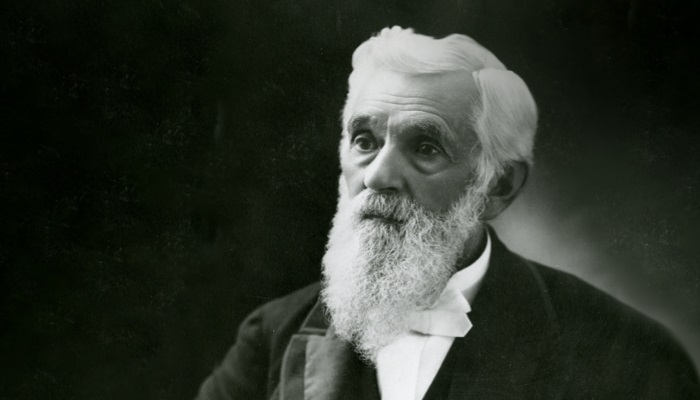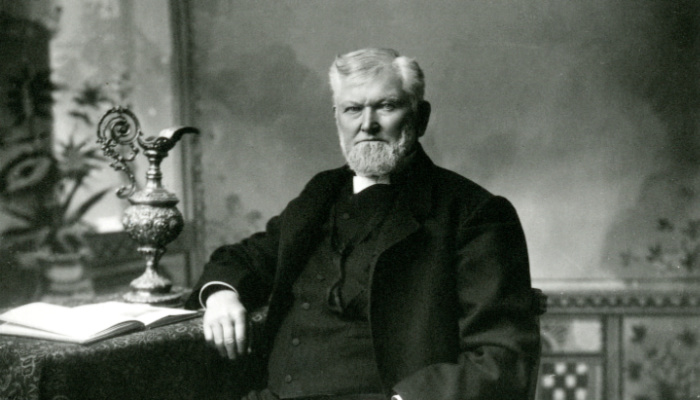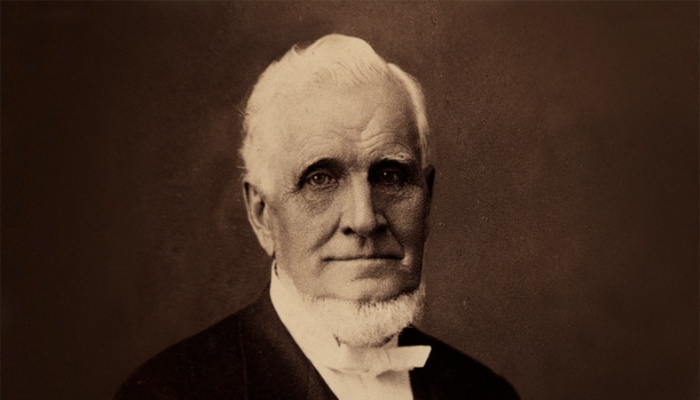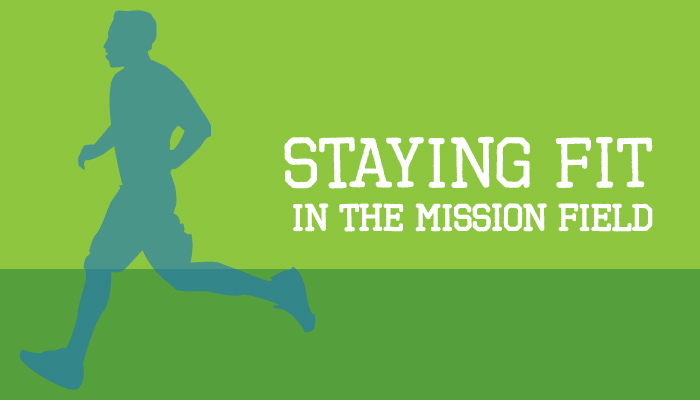
Staying Fit in the Mission Field
Supposedly, there’s a mission in New Zealand where the diet consists primarily of sweetened condensed milk, the missionaries drive rather than walk, and the average weight gain is 80 lbs. While this sounds extremely unlikely (I’ve looked it up and found 0 evidence confirming this myth), it illustrates a fear many face when deciding whether or not to serve a mission: will I get fat if I serve a mission?
No, serving a mission isn’t a weight gain guarantee. If you’re particularly worried that serving a mission means sacrificing your physique, here are a few tips to stay in shape.
Slow Down Your Eating
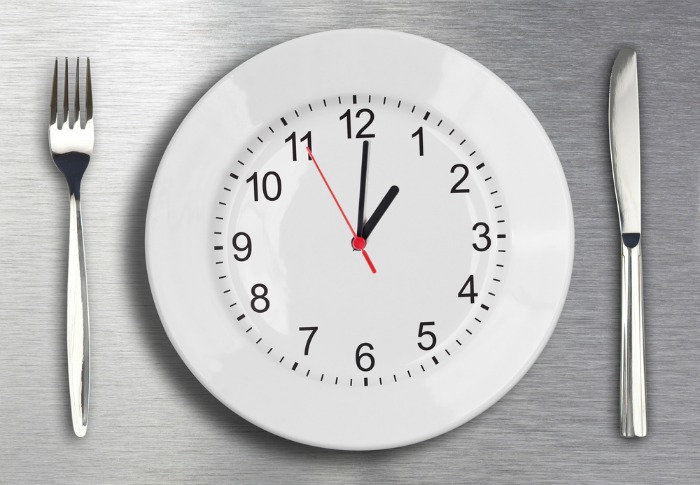 You sit down at a member’s house; your stomach growls as you look at the spread laid before you — you must resist the urge to dive in head first. Seriously, chill and take the time to really savor your food. There’s a whole neuroscience behind it with neurotransmitters like ghrelin and leptin taking their time sending signals to alert you to hunger or satiety. Just understand: you don’t realize you’re full until about 20 minutes after you’ve hit your limit. So, slow down your eating; it not only forces you to consume fewer calories, but also discourages your host from offering you more food.
You sit down at a member’s house; your stomach growls as you look at the spread laid before you — you must resist the urge to dive in head first. Seriously, chill and take the time to really savor your food. There’s a whole neuroscience behind it with neurotransmitters like ghrelin and leptin taking their time sending signals to alert you to hunger or satiety. Just understand: you don’t realize you’re full until about 20 minutes after you’ve hit your limit. So, slow down your eating; it not only forces you to consume fewer calories, but also discourages your host from offering you more food.
Save it for later

If eating slowly didn’t work out and your host is still trying to push seconds, thirds, or dessert onto your plate, try bringing a second stomach: a plastic, transportable, second stomach. I’ve heard of missionaries using everything from Ziploc bags to Tupperware to “save it for later” (i.e. give to other missionaries). Asking to take some for the road could be disrespectful in some cultures, so use your better judgment when applying this tactic in the field.
Exercise
 Exercise is especially important for missionaries serving in areas where transportation is by car, rather than by foot. 30 minutes might not seem like enough time to get in a good work out — but there are ways to maximize your time. A quick Pinterest search yields pages and pages of high intensity workouts to get your blood pumping in just 30 minutes; most don’t even require equipment. A good 30-minute workout can have benefits long after you’ve stopped working out, boosting your metabolism, energizing you for the rest of the day, and even heightening your immune system’s defenses.
Exercise is especially important for missionaries serving in areas where transportation is by car, rather than by foot. 30 minutes might not seem like enough time to get in a good work out — but there are ways to maximize your time. A quick Pinterest search yields pages and pages of high intensity workouts to get your blood pumping in just 30 minutes; most don’t even require equipment. A good 30-minute workout can have benefits long after you’ve stopped working out, boosting your metabolism, energizing you for the rest of the day, and even heightening your immune system’s defenses.
Drink Plenty of Water
 With all the walking missionaries do, staying hydrated is a must. Water before meals can also provide a buffer and reduce your intake at meal time. A study done by Dr. Brenda Davy, an associate professor at Virginia Tech, found that those who started their meal with a glass of water consumed 75 fewer calories on average. Keeping hydrated is not only necessary for physical health, but has been shown to benefit mental health as well. In a 2011 study published in the National Library of Medicine, it was found that both memory and attention were improved after a drink of water.
With all the walking missionaries do, staying hydrated is a must. Water before meals can also provide a buffer and reduce your intake at meal time. A study done by Dr. Brenda Davy, an associate professor at Virginia Tech, found that those who started their meal with a glass of water consumed 75 fewer calories on average. Keeping hydrated is not only necessary for physical health, but has been shown to benefit mental health as well. In a 2011 study published in the National Library of Medicine, it was found that both memory and attention were improved after a drink of water.
For some missionaries, access to clean drinking water is limited. While the Church usually issues each missionary a filtered water bottle, excessive use can wear the filter out. Be sure to work water bottles or bagged water into your budget.
Don’t Freak Out
 There’s no denying it: serving a mission is stressful. Homesickness, new people, foreign lands, and unknown languages, all combined with the rejection missionaries face on a daily basis don’t exactly equate to 2 years (or 18 months) of pure bliss. All this extra stress can lead to excessive levels of a hormone called cortisol. Long term, heightened cortisol levels cause increase appetite and fat storage in the body. So the more stressed you are, the more you crave those fatty comfort foods, the more likely you are to overeat. Be aware of your stress level, as yourself, “Am I actually hungry or are you eating emotionally?”
There’s no denying it: serving a mission is stressful. Homesickness, new people, foreign lands, and unknown languages, all combined with the rejection missionaries face on a daily basis don’t exactly equate to 2 years (or 18 months) of pure bliss. All this extra stress can lead to excessive levels of a hormone called cortisol. Long term, heightened cortisol levels cause increase appetite and fat storage in the body. So the more stressed you are, the more you crave those fatty comfort foods, the more likely you are to overeat. Be aware of your stress level, as yourself, “Am I actually hungry or are you eating emotionally?”
As with all advice, none of this shouldn’t be taken to an extreme. There’s a difference between conscientiousness and fanaticism. In other words, a couple pounds won’t kill you, and freaking out over a little bit of weight gain will add even more unnecessary stress to an already stressful period of time. Your focus should be on the work of the Lord, not the beach-readiness of your body.
For all you LDS missionaries who managed to stave off the weight: how’d you do it? And for those of you who didn’t: what were your pitfalls?





